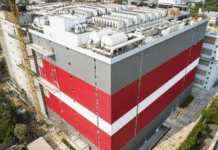By Nishant Arora
New Delhi–Generating data is one thing; storing it is another — and that the real headache in a “Data Age” where solutions based on artificial intelligence (AI), machine learning and analytics have created a colossal sea of information.
For enterprises — both traditional and start-ups — managing humongous data has become the main task globally, including in India, for which the All Flash Array (AFA) storage can provide a quick solution.
An All-Flash Array, also referred to as Solid State Array (SSA), is data storage that contains multiple flash memory drives instead of spinning hard disk drives (HDDs) and offers greater efficiency compared to traditional HDD storage in terms of scalability.
Of late, India is emerging as a strong early adopter of AFA storage systems. According to a report by Frost and Sullivan, AFA storage is rapidly becoming the storage technology of choice for chief information officers (CIOs) in India and 70 percent of of the enterprises expect to have an AFA storage infrastructure to support most business critical applications by 2020.
“Enterprises are looking for fast delivery data storage solutions to meet their data management demands. AFA offers them greater efficiency compared to traditional HDD storage. They can scale-out the solutions depending on their needs and demands,” Ramanujam Komanduri, Director-Enterprise Business, NetApp, told IANS in an interview.
According to the market research firm International Data Corporation (IDC), US-based storage and data management company NetApp, with a market capitalisation of $10.7 billion, has grown faster than the AFA market as a whole and has an overall market share of 28 per cent in India.
“We see positive growth not just with existing customers but potential customers as well, especially in the Banking, Financial Services and Insurance (BFSI) industry in the country. The Indian BFSI industry has always taken the lead in building a robust IT infrastructure and will continue to do so,” Komanduri added.
The total spending on IT by banking and security firms in India is expected to grow 8.6 per cent year-on-year to $7.8 billion this year. Banks will extend their technology core to achieve digital transformation and modularisation along with ease of cross-functional data management and policies.
“With the rise of millennials, globalised audiences and growing digitisation, the Indian BFSI sector needs a robust backbone with improved data security and compliance while elevating to next-generation data centres (Public/Private Cloud) with non-disruptive operations,” Komanduri emphasised.
In fact, data encryption and security continue to be an important priority across the industry and need to be practised at data management layer itself. Backup, restore and archival strategies demand quick turn-around and instant recovery in case of disaster to fall in line with the company’s compliance policy.
Combined with the “Data Fabric” structure, NetApp’s flash portfolio provides advanced level of data encryption and protection.
“NetApp will enable customers create an available-on-demand infrastructure to incorporate business surges and standardise business processes across functions and locations,” Komanduri said.
For the traditional enterprise infrastructure buyer, the NetApp All Flash FAS (AFF) product line delivers enterprise-grade features across flash, disk and cloud resources.
For the application owner, the NetApp EF Series product line will offer world-class “SPC-1” benchmarks with consistent low-latency performance and proven 6×9’s reliability.
“We are prepared to address every possible segment and workload that the market wants. The BFSI industry is on a cusp of huge growth and choosing the right partner will go a long way in achieving the ongoing digital transformation,” Komanduri told IANS.
The Global Centre of Excellence in Bengaluru — the largest for NetApp outside the US — is of critical importance to the overall success of the company.
“We have teams here that work very effectively on most of the global R&D projects and all our core products. Through this campus, we are delivering a global R&D roadmap which is aligned to the local government objective of ‘Make in India,’ ” Komanduri stressed.
“Owing to the highly skilled talent that is available here and partners that are seasoned and committed to offer scale and services, we are equipped to accelerate our focus on the Hybrid Cloud,” he added. (IANS)






